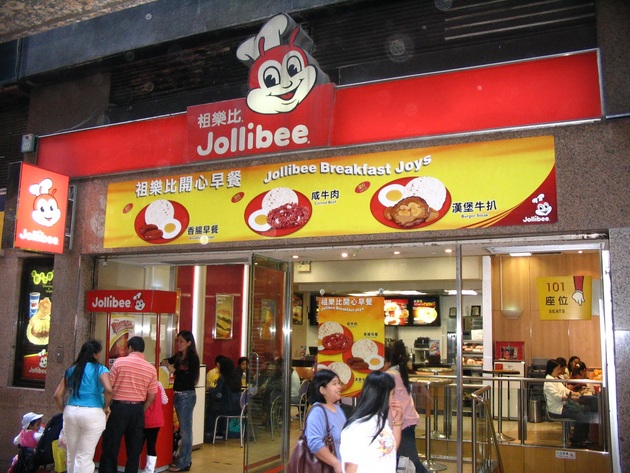Jollibee gains full control of China manufacturing unit
HOMEGROWN Jollibee Foods Corp. (JFC), now the largest food service enterprise in Asia, is taking full control of a food manufacturing facility in mainland China that services its flagship business Yonghe King in this key overseas market.
In a disclosure to the Philippine Stock Exchange on Wednesday, Jollibee said a wholly owned subsidiary had agreed to buy 30 percent of Happy Bee Foods Processing Pte. Ltd. for around $10.4 million.
The group, through Jollibee Worldwide Pte. Ltd., would be raising to 100 percent its stake in Happy Bee, which fully owns Happy Bee Foods Processing (Anhui) Co. Ltd. The latter is the operator of a manufacturing facility in Anhui, China that services the requirements of Yonghe King and produces and sells food products for business institutions aside from Jollibee.
The seller, Hua Xia Harvest Holdings Pte. Ltd., would be paid in the form of assets related to the production of food products intended for institutions outside of Jollibee brands in China. JFC would not be paying in cash for the acquisition of the 30 percent share, the disclosure read.
“The objectives of the acquisition of the 30 percent ownership of Happy Bee, essentially an equity share and asset swap, are for JFC to concentrate on supporting the growth of its Yonghe King business and on further improving its food quality and increasing assurance on food safety,” the company said.
Yonghe King is one of the most recognized non-Western restaurant in the mainland, based on earlier brand power surveys. Jollibee’s largest business in China, the Yonghe King, is composed of 321 stores and contributes 10 percent to the network’s sales worldwide.
Jollibee has been on a buying spree in China. This latest purchase lends credence to its strong foothold in the region, which began making profits only in 2014.
Apart from Yonghe King, which was acquired in 2004 and has since then positioned itself as a contemporary Chinese fast-food chain, the group also operates two other restaurant chains in mainland China—Hong Zhuang Yuan, which has 42 branches; and San Pin Wang, with 59 branches. The group also bagged the deal to operate the Dunkin Donuts franchise in China with the goal of opening 1,000 stores in 20 years.
In the past, Jollibee’s offshore expansion strategy was to follow where overseas Filipino communities were. But in recent years, the company began acquiring local chains catering to domestic markets instead of pushing its own brands.
Jollibee operates a total of 20 commissaries worldwide: 13 in the Philippines, three in China, three in the United States and one in Vietnam. It builds these commissaries to supply food products to its restaurants, making its supply chain more efficient while assuring food quality and safety.
The transfer of shares and assets related to the Happy Bee deal would still be subject to government processes and regulatory approvals, which are expected to be completed within the year. Jollibee would also have to fulfill certain conditions, including due performance of obligations under the agreement and approvals from third parties relevant to the business.
